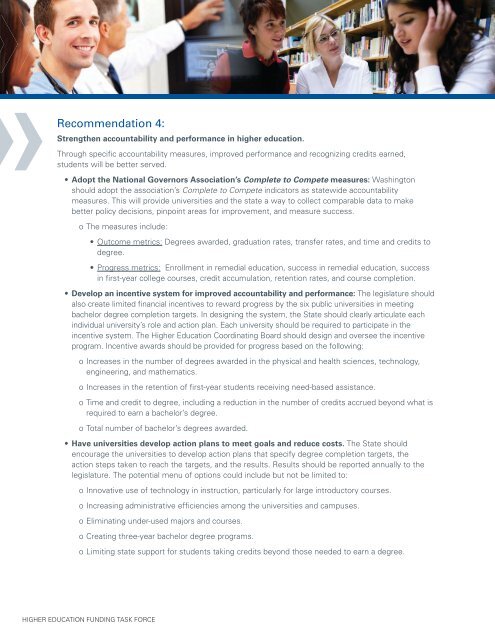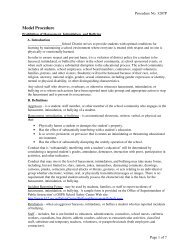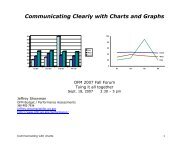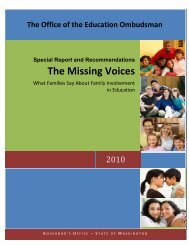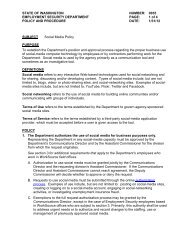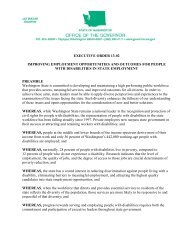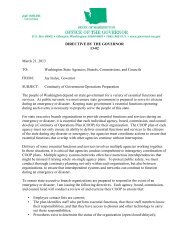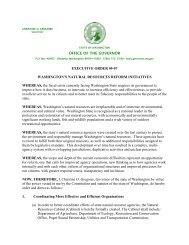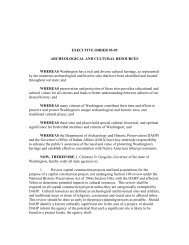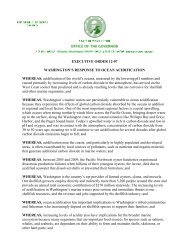Higher Education Funding Task Force
Higher Education Funding Task Force
Higher Education Funding Task Force
Create successful ePaper yourself
Turn your PDF publications into a flip-book with our unique Google optimized e-Paper software.
Recommendation 4:<br />
Strengthen accountability and performance in higher education.<br />
Through specific accountability measures, improved performance and recognizing credits earned,<br />
students will be better served.<br />
• Adopt the National Governors Association’s Complete to Compete measures: Washington<br />
should adopt the association’s Complete to Compete indicators as statewide accountability<br />
measures. This will provide universities and the state a way to collect comparable data to make<br />
better policy decisions, pinpoint areas for improvement, and measure success.<br />
o The measures include:<br />
HIGHER EDUCATION FUNDING TASK FORCE<br />
• Outcome metrics: Degrees awarded, graduation rates, transfer rates, and time and credits to<br />
degree.<br />
• Progress metrics: Enrollment in remedial education, success in remedial education, success<br />
in first-year college courses, credit accumulation, retention rates, and course completion.<br />
• Develop an incentive system for improved accountability and performance: The legislature should<br />
also create limited financial incentives to reward progress by the six public universities in meeting<br />
bachelor degree completion targets. In designing the system, the State should clearly articulate each<br />
individual university’s role and action plan. Each university should be required to participate in the<br />
incentive system. The <strong>Higher</strong> <strong>Education</strong> Coordinating Board should design and oversee the incentive<br />
program. Incentive awards should be provided for progress based on the following:<br />
o Increases in the number of degrees awarded in the physical and health sciences, technology,<br />
engineering, and mathematics.<br />
o Increases in the retention of first-year students receiving need-based assistance.<br />
o Time and credit to degree, including a reduction in the number of credits accrued beyond what is<br />
required to earn a bachelor’s degree.<br />
o Total number of bachelor’s degrees awarded.<br />
• Have universities develop action plans to meet goals and reduce costs. The State should<br />
encourage the universities to develop action plans that specify degree completion targets, the<br />
action steps taken to reach the targets, and the results. Results should be reported annually to the<br />
legislature. The potential menu of options could include but not be limited to:<br />
o Innovative use of technology in instruction, particularly for large introductory courses.<br />
o Increasing administrative efficiencies among the universities and campuses.<br />
o Eliminating under-used majors and courses.<br />
o Creating three-year bachelor degree programs.<br />
o Limiting state support for students taking credits beyond those needed to earn a degree.


